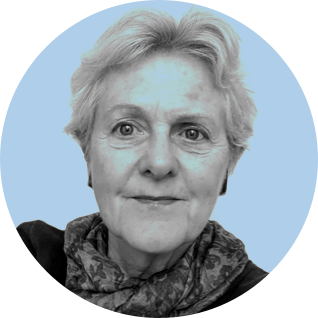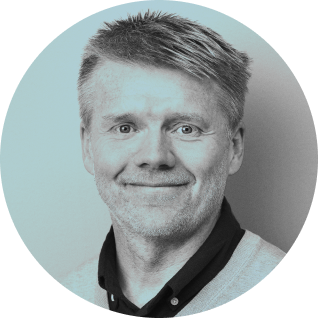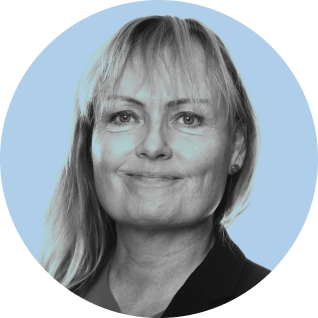Meet the friendly faces of Copenhagen Hazard Mapping (CHM) HQ
Hardcore developers, communications wizards, drone and satellite geeks, admin people, bomb disposal experts and humanitarians... all of those smiling, dedicated, simply amazing people who, together with our extraordinary partners, make CHM happen.
People

Bo Benemann Bischoff
Bo has a military background, holds an MBA and was once a slick management consultant, who went humanitarian. For years he took aid convoys to besieged enclaves during the war in Bosnia, progressed to mine clearance and bomb disposal - all over the world. He built and headed Danish Demining Group and was a part of the Skallingen Clearance. Bo then returned to the Danish Armed Forces as Head of all Vehicles, took on Audits, and finally the Industry Office. He now works with risk management.
E-mail: bbb@chm.ngo

Martin Jebens
Martin is a visionary in humanitarian innovation, specializing in disaster risk management and mine action. He is a pathfinder when it comes to utilizing remote sensing, big data, and AI for the greater good. He has spearheaded projects successfully (ICRC, GICHD, Canadian Red Cross etc.), bringing humanitarian organizations, academia, and the private sector together to tackle some of the global humanitarian challenges. He holds a master’s degree in disaster risk management and another in volcanology.
E-mail: mj@chm.ngo

Kristian Pedersen
Kristian is a professor in Space Science. He has worked at the Niels Bohr Institute, Copenhagen University, been a dean at Århus University, managed the Danish National Space Institute, is on the steering committee for the ESA Euclid Space Mission. He is the go-to guy for the Danish space community and its international context, and he is dedicated to bringing space data into use for the benefit of all. If you have time, he will love to tell you more about dark matter and the mysteries of the Universe.
E-mail: kp@chm.ngo

Peter Lempel Søndergaard
Peter has a Ph.D. in mathematics and computer science, and a post doc. in mathematics of psychoacoustics. He has worked in the Danish medical device industry for more than 10 years as a manager of research and development teams. For the last 7 years he has managed teams developing AI for medical products, focusing on AI for 3D geometry.
E-mail: ps@chm.ngo

Torben Thomsen
Torben holds the roles of Scrum Master, CTO, and Co-Founder at Pulilab Software House, a company dedicated to developing digital health solutions for prestigious organizations like WHO and UNICEF. Passionate about remote sensing in the humanitarian field, Torben also engages in designing and constructing custom drones, focusing on optimizing their dimensions, engineering, and sensor integration for enhanced performance in remote sensing applications.
E-mail: tt@chm.ngo
Board

Erika Jørgensen
Erika is a teacher and journalist by profession. She has worked as a humanitarian in every corner of the World. Initially, 18 years with the Danish Refugee Council and then in various managerial positions in the UN. Country Director for the World Food Program in Armenia and Nepal, Deputy Regional Director for Asia, Director for the WFP Nordic office, the WFP New York office, Global Director for Budgeting and Programming and finally as Regional Director for WFP in Eastern and Central Africa. Erika now sits on the board of CHM because she is passionate about enhancing the impact of humanitarian actors via AI-driven data analysis.

Michael Schultz Rasmussen
Michael has a PhD in Physical Geography and has worked with remote sensing and geospatial data and analysis throughout his career. A key competence is the knowledge about the application areas and potentials of different spatial data, whether they are acquired from satellites, survey aircrafts, drones, or other vehicles. Michael worked in Senegal for the UNDP building capacity to utilize EO for resource management. He was an associate professor at University of Copenhagen in remote sensing and founded the start-up GRAS. Later he joined COWI as market director for the mapping and geospatial business. Today he is head of Geodesy and Earth Observation at DTU Space. Michael is on the board of CHM to make a significant difference in terms of utilizing the best available geo data and methods to counter and mitigate hazards – wherever they are!

Lisbeth Kirk
Lisbeth is a media innovator and journalist with special expertise in European affairs. She founded EUobserver in 2000, which today is considered to be among the top 10 most influential publications in Brussels. With one foot in the EU institutions and the other in civil society, her team has built influence and trust reaching far beyond the EU capital. She has joined the board of CHM believing the initiative's special mix of competencies and creativity will contribute to generate much needed new solutions.

Andreas Sørensen
Andreas is an entrepreneurial green-tech strategist who bridges the boardroom and the backcountry. A pioneer of solar-powered off-grid water systems for crisis zones, he combines deep operational knowledge with a sharp eye for scalable innovation. From the arctic with the Danish Special Forces and mine action in Africa as a humanitarian, to leading sustainable facility development at A.P Moller Maersk and Genmab, Andreas excels at translating complex challenges into pragmatic, future-focused solutions. Equally at home in polished corporate environments and remote frontline operations, he brings systems thinking, relentless energy, and a bias for action and assisting those in need.

Lisbeth Pilegaard
Lisbeth Pilegaard is a seasoned democracy expert and senior leader with more than 25 years of professional managerial experience, primarily from conflict-affected countries. Lisbeth has been a member of the European Endowment for Democracy (EED) Board of Governors since its establishment in 2013 and has served as the chair of the Executive Committee since 2018.
As a senior manager and consultant, Lisbeth has worked in more than 40 conflict-affected countries on all continents with long-term deployments in Iraq, Zimbabwe, Uganda, Bosnia & Hercegovina, Serbia, Croatia, Iran, Pakistan, and Afghanistan.
Lisbeth has served in various NGO/UN/EU/NATO committees and working groups on development, humanitarian aid, civil-military coordination. She has joined the board at CHM to help accelerate the organisation with her vast international network and passion for innovation in general and particular in the humanitarian sector.
We are expanding at a high rate and always interested in talent. Reach out if you believe that technology should be used for the greater good of both man and planet.
History
2005 - 2012
Copenhagen Center for Human Hazard Mapping grew out of the clearance of the WW2 minefield at the Skallingen Peninsula 2005-2012. This clearance was the first in the Mine Action sector to use Remote Sensing and is still considered one of the most innovative projects globally 15 years later. Our discussion revolved around the use of remote sensing in both Mine Action and other humanitarian sectors to enhance societal resilience, mitigate risks to civilians and optimize operations.
2023
In 2023 these thoughts took root and we established and registered Copenhagen Center for Human Hazard Mapping as an NGO with the Danish authorities.
